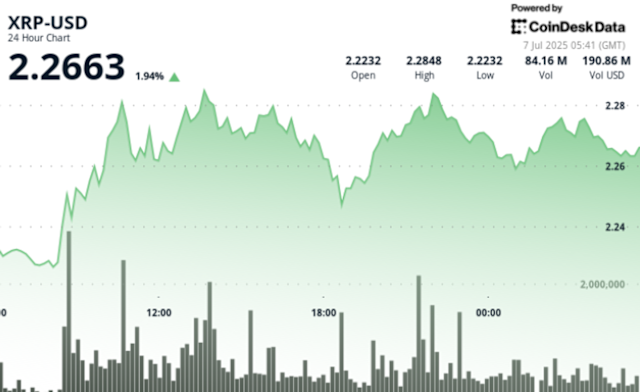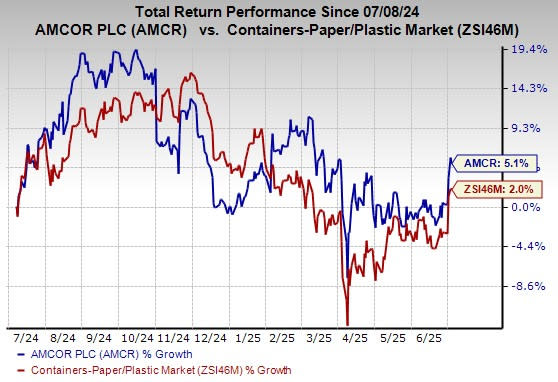Inside Starwood’s SREIT: A Conversation with Barry Sternlicht

Barry Sternlicht, Chairman & CEO of Starwood Capital Group
By Exec Edge Editorial Staff
Exec Edge had the opportunity of sitting down with Barry Sternlicht, Chairman and CEO of Starwood Capital Group, to discuss about the company’s Real Estate Income Trust, among other topics.
Exec Edge: Given the current economic landscape, how do you assess the state of the real estate market today—and when do you expect to see a meaningful recovery?
Invest in Gold

American Hartford Gold: #1 Precious Metals Dealer in the Nation
Learn More
Priority Gold: Up to $15k in Free Silver + Zero Account Fees on Qualifying Purchase
Learn More
Thor Metals Group: Best Overall Gold IRA
Learn More Powered by Money.com - Yahoo may earn commission from the links above.Barry Sternlicht: The past two and a half years have been challenging for real estate. We’ve had to battle one of the fastest and steepest interest rate hikes in history, along with a flood of new supply that began during the low-rate environment, which has pressured rental growth and valuations.
We’re now starting to see the foundation of a recovery take shape. One of the most important shifts is the sharp drop in new supply—happening just as supply chains are being disrupted and input costs are rising due to the uncertain tariff policy. This means we’re going to see less supply for longer, and in many cases, assets trading below replacement cost.
We also believe interest rates are coming down. In Europe, inflation peaked at 10% and rates rose to 4%. Today, inflation sits at 1.9% and rates are 2%. In the U.S., inflation peaked at 9% and today sits at 2.5%, but rates have only fallen to 4.25%. The Fed is behind. Interestingly, despite the supply headwinds, occupancies—particularly in multifamily—have remained in the mid-90s%. Households can’t afford to buy homes, so they’re renting. Meanwhile, incomes have risen, which has improved rent affordability.
The recovery won’t be a straight line—but we do expect a more constructive environment in 2026, especially if the Fed starts cutting rates as many expect. Lower rates would bring capital back into the market. That said, even in today’s environment, there’s opportunity. The key is staying disciplined—owning the right sectors in the right markets. That’s exactly how we’ve positioned Starwood Real Estate Income Trust (“SREIT”).
Exec Edge: SREIT, one of Starwood Capital’s largest real estate investment vehicles, recently provided an update to stockholders. What were some of the takeaways?
Barry Sternlicht: The main message I wanted to deliver is simple: SREIT’s portfolio is in excellent shape. We’ve built a $23 billion portfolio focused on high-quality, stabilized, income-producing real estate. SREIT is 94% occupied, 56% levered, and nearly 90% of our assets are in sectors with strong long-term fundamentals—rental housing, industrial, and real estate loans. About 80% of the portfolio sits in high-growth Sunbelt markets, where job growth, population migration, and affordability trends are all working in our favor over the long-term. That positioning has translated into strong underlying fundamentals. Over the past two years, SREIT delivered a compounded 12% increase in same-store net operating income—outpacing our peer set and demonstrating the strength of the portfolio we’ve built.
Story ContinuesLooking ahead, what really sets us apart is our 70% concentration in two sectors: affordable housing and market-rate apartments. Affordable housing is 23% of the portfolio and, frankly, is the crown jewel of our strategy. It’s income-linked, pretty much always occupied, undersupplied, and rents can’t go down. For our portfolio, HUD recently approved nearly 7% rent increases, with an additional 2% deferred into 2026, giving us predictable income growth. Half of our portfolio is market rate. Rents are around half the cost of owning a home, and with construction starts down significantly, we see real tailwinds ahead.
Exec Edge: How has SREIT performed?
Barry Sternlicht: There’s been some noise in the media—some of it misleading—so let’s set the record straight. Since the start of 2024, SREIT’s total return has been roughly flat, which, given broader market volatility, we believe is a solid outcome and in line with expectations. Our current annualized distribution rate is 5.9%, or close to 10% on a tax-equivalent basis for investors in the top tax bracket. That’s attractive income, and if short-term rates move lower, as the forward curve suggests, that distribution only becomes more compelling.
SREIT’s performance really comes down to two key factors: the quality of our real estate and our interest rate hedges. And the real estate—which is what matters most over the long-term—has held up well. It was up 2.2% in 2024 and is up 0.3% through May of 2025, supported by modest rent growth.
Our nominal NAV has come down but mainly because we have returned over $5 billion to investors through share repurchases. Investors have not lost 40% of their capital as the Wall Street Journal implied. Since inception, our Class I shares have delivered an annualized total return of 6.2%. Bottom line: SREIT is doing what we built it to do—generate stable, tax-efficient income and deliver long-term value to our investors.
Exec Edge: There has been a lot of discussion around non-listed REITs in recent years. Why do you believe these vehicles are both necessary and attractive?
Barry Sternlicht: Non-listed REITs fill an important gap in the investment landscape. They give individual investors access to high-quality real estate—the kind institutions have owned for decades—without the daily volatility of the stock market. That’s a big deal, especially in a world where people are looking for stable income and diversification. And with vehicles like SREIT, that income is often tax-advantaged, which makes it even more attractive.
The data speaks for itself: nearly 75% of our investors have never submitted a redemption request. They’re staying in, collecting attractive income, and seeing the benefit of having a real asset-backed strategy in their portfolios. Yes, capital raising is slower across all of equity real estate right now—that’s to be expected in this environment of muted performance. But real estate is the world’s largest asset class, the U.S. enjoys population growth and a broad buoyant economy, and real estate will turn a corner. We believe there’s a long future ahead for non-traded REITs, especially for investors who understand the asset class and are in it for the long haul.
Exec Edge: Could you provide an update on the SREIT’s liquidity strategy, and what factors influenced your recent asset sale decisions?
Barry Sternlicht: In May 2024, we made the deliberate decision to pause property sales and amend our share repurchase plan. That wasn’t easy—but selling assets into what we believed was the bottom of the market didn’t make sense. Our job is to protect long-term value for all investors. That patience paid off. After the Fed cut rates in September, capital markets improved, and we were able to execute $1.6 billion in asset sales—at prices within 1% of our valuations and at cap rates that are 75 – 100 bps better than what the market was seeing just a few months earlier. By waiting for the right window, we believe we generated 15–20% more value on those sales. In addition, we focused on keeping the assets we thought would perform the best over the long term in the portfolio. With that progress, we recently announced several enhancements to our share repurchase plan. We have increased our monthly share repurchase limit from 0.33% to 0.50% of NAV, and the quarterly limit from 1.00% to 1.50%. We also added some practical improvements to ease pressure points in the redemption process—such as raising the minimum account balance which allows smaller accounts to be fully redeemed sooner.
Exec Edge: How do you respond to concerns from SREIT stockholders who are seeking to redeem their investments?
Barry Sternlicht: We hear the concerns, and we don’t take them lightly. We are aligned with our shareholders. Our management fees are paid in stock and Starwood Capital Group owns almost 5% of the NAV. This has been a challenging market, and I fully understand the frustration from investors who want access to their capital. Since we put tighter liquidity limits in place in May 2024, stockholders requesting redemptions have still received 40% of their capital back. But we understand it’s a cumbersome process, and we remain committed to pursuing a long-term liquidity solution for SREIT. In the meantime, we’re aligning ourselves with investors by continuing to waive 20% of our management fee—bringing it down from 1.25% to 1.00% of NAV—until we can fully reinstate the standard liquidity levels. Our job is to operate with a fiduciary mindset, be disciplined, and protect long-term value—even when it’s uncomfortable. And that’s what we’re committed to doing.
Exec Edge: How does Starwood’s broader platform and experience give SREIT a competitive advantage in today’s market?
Barry Sternlicht: We believe our 33-year history and our platform is a real edge. Starwood is the nation’s largest owner of affordable housing and one of the largest owners of market rate apartments as well. We have navigated six business cycles successfully and moved in and out of sectors as conditions changed. We own or finance over $300 billion of real estate, giving us real-time insights into everything from the latest prices, leasing, and market performance to financing terms. And everyone at Starwood makes it their primary objective to share these insights across the firm so we make the most well-informed decisions. This scale gives us access to data, relationships, and opportunities that others just don’t have. For SREIT, it means we’ve hand-picked a portfolio that reflects long-term demand trends and is backed by a platform that combines research, local knowledge, and operating experience. In a market like this, where timing and discipline are everything, that platform is a significant advantage.
Contact:
Exec Edge













